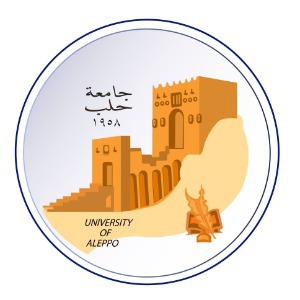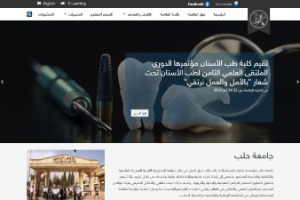University of Aleppo

University of Aleppo is located in Aleppo, Syria which is a public university. The university was founded in 1958. It is one of the oldest and largest universities located in Syria. It is well-known for the high research activities of its member staff, most of them being very highlighted in their own fields. Of course, the ongoing conflict throughout Syria in recent years has created challenges for the university in terms of the infrastructure and resources. It, however, remains a vital institution in the higher education landscape regionally and contributes to the growth and human capital toward production of knowledge in Syria and places beyond.
University of Aleppo is ranked as the #3 top university in Syria during 2025. This is the same rank as last year.
University Profile
Get a quick snapshot of the university's key details.
| 2025 Ranking | #3 |
|---|---|
| University Name | University of Aleppo |
| Name in Local Language | جامعة حلب |
| Year Established | 1958 |
| Governing Type | Public |
| Student Body | Co-education |
| Highest Degree | Doctorate |
| Campus Type | Urban |
Location
The university is located in Aleppo, Halab. Find the address and map of the university below.
| Address | University of Aleppo, Aleppo, Halab, Syria |
|---|---|
Contact
Connect with the university easily! Find their contact details.
| Phone | +963 (21) 266 8800 |
|---|---|
| Fax | +963 (21) 222 9184 |
| Website |

|
| More Links |
Admission Info
The admission requirements for Aleppo University vary depending on the program and level of study. Generally, applicants must have a high school diploma or equivalent certificate and may need to pass an entrance exam or meet minimum GPA requirements. International students may also need to provide evidence of language proficiency in Arabic or English, depending on the language of instruction for their chosen program. The application process typically involves filling out an online or paper application form, providing academic transcripts and supporting documents, and paying an application fee. The university may also conduct interviews or additional exams for certain programs. It's important to note that due to the ongoing conflict in Syria, the admission process may be subject to change, and potential applicants should check with the university or relevant authorities for the latest information on admission requirements and procedures.
| Accepts International Students | Yes |
|---|
Scholarship and Financial Aids
Aleppo University offers a range of scholarships and financial aid options to its students. The university provides need-based scholarships and merit-based scholarships to students who demonstrate academic excellence and financial need. In addition, there are scholarships and grants provided by the Syrian government, non-governmental organizations, and international organizations that are available to eligible students. These scholarships may cover tuition fees, accommodation costs, travel expenses, and living expenses. Students are encouraged to research and apply for scholarships that are relevant to their field of study and personal circumstances. However, it's important to note that due to the ongoing conflict in Syria, scholarship availability and amounts may be subject to change. Prospective students should check with the university or relevant authorities for the latest information on scholarship opportunities and eligibility criteria.
Programs and Courses
Get a quick overview of programs and courses offered at this university.
| Bachelor's Degrees | Master's Degrees | Doctorate Degrees | Diplomas | |
|---|---|---|---|---|
| Arts & Humanities | n/a | |||
| Business & Social Sciences | n/a | n/a | n/a | |
| Engineering | n/a | |||
| Language & Cultural Studies | n/a | n/a | n/a | |
| Medicine & Health | n/a | |||
| Science & Technology | n/a | n/a |
Click on the following button to explore a detailed list of programs and courses of this institute.
View Course ListRelated Articles
Stay informed with the following article related to the university or higher education in Syria.
